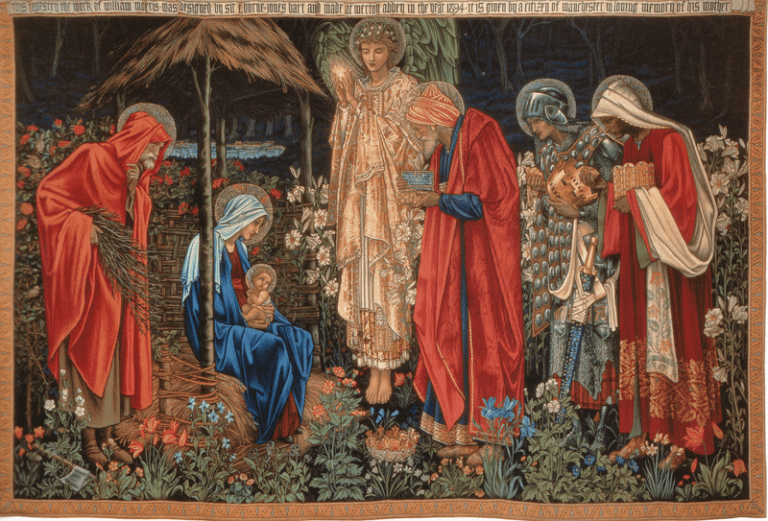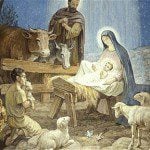
The Greek term often rendered as “wise men” in Matthew 2:1 and 2:7 is μάγοι (magoi), which is sometimes Anglicized as magi. It entered into English ca. 1200 AD with the meaning of “magicians” or “astrologers,” from Latin magi, the plural of magus (“magician,” “learned occultist”), from the Greek word magos, which was used for the Persian learned and priestly class. The Old Persian term magush meant “magician.”
These “wise men” came rather vaguely ἀπὸ ἀνατολῶν, “from the East,” which doesn’t tell us a great deal about their land of origin.
Matthew 2:2 reports the magi as saying that they had “seen his star in the East” (ἐν τῇ ἀνατολῇ). In his recently published volume The New Testament: A Translation for Latter-day Saints: A Study Bible, Thomas Wayment has them saying that they had “seen his rising star.” He argues in justification of this rendering in a note to the passage.
According to Matthew 2:11, the magi bestow upon the infant Jesus three gifts: gold, frankincense, and myrrh. The first, of course, would have been appropriate to a king. The second, frankincense, was used in the liturgy of the ancient temple. The third, myrrh, was used during the preparation of bodies for burial. Many have thought that the specific identity of these three gifts is significant, prefiguring or symbolizing aspects of Christ’s life, nature, and mission. The three gifts have also probably given rise to the notion that there were three magi. However, we don’t actually know how many there were, and we certainly don’t know that they were named Gaspar, Balthasar, and Melchior. By the era of koiné (or “New Testament”) Greek, the older Greek dual form was basically gone, so we can’t say that the use of the plural μάγοι (magoi) proves that there were at least three. But there were certainly at least two, and there could theoretically have been four, or twenty-four, or forty. Or, for that matter, six hundred and sixty-six.
Note that, at Luke 2:13, the gospel reports the “heavenly host” as “saying,” not actually as “singing,” their message.
The proper translation of the message of the angelic chorus in Luke 2:14 has been a matter of some disagreement:
Δόξα ἐν ὑψίστοις θεῷ καὶ ἐπὶ γῆς εἰρήνη ἐν ἀνθρώποις εὐδοκίας.
King James Version: “Glory to God in the highest, and on earth peace, good will toward men.”
Revised Standard Version, 2d ed.: “Glory to God in the highest, and on earth peace among men with whom he is pleased.”
Thomas Wayment, The New Testament: A Translation for Latter-day Saints: A Study Bible: “Glory to God in the highest, and on the earth peace to men and women with whom he is pleased.”
S. Kent Brown, The Testimony of Luke, Brigham Young University New Testament Commentary (Provo: BYU Studies, 2015): “Glory in the highest places to God, and peace on earth among men of good favor.”
(The Greek plural ἄνθρωποι, often translated as “men,” has that meaning not in the sense of “males” but in the sense of “humans.” Hence Professor Wayment’s somewhat paraphrastic expanded translation above.)
The explanation at Luke 2:19, that “Mary kept all these things, pondering them in her heart,” is vintage Luke, and suggests, once again, that he may have interviewed Mary or somebody who knew her. Certainly, along with the story of the common shepherds of Bethlehem, it is consistent with his interest in the voices of women and of relatively ordinary people. Matthew’s account, by contrast, manifests his focus on Jesus as the royal messiah, with even aristocratic foreigners bringing him offerings of gold and other precious gifts.












